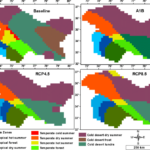In an ever-evolving digital landscape, the term ‘literacy’ has transcended its traditional definition of the ability to read and write. Today, it encompasses a broader spectrum, including digital literacy—the capacity to understand, utilize, and engage with technology and digital platforms effectively. As we navigate through the Information Age, digital literacy has ceased to be a luxury; it has become a necessity.
The contemporary world is synonymous with rapid technological advancement. From artificial intelligence to big data, from telemedicine to remote work, digital technologies are reshaping the fabric of our lives. However, the benefits of this digital era are not evenly distributed. A chasm exists between those who are digitally literate and those who are not, often referred to as the ‘digital divide’. Bridging this gap is not only beneficial but imperative for fostering inclusive growth, enhancing democratic participation, and ensuring the competitiveness of our workforce.
Digital literacy is the cornerstone of empowerment in the 21st century. It provides individuals with the tools to access information, services, and opportunities that are increasingly moving online. For example, the COVID-19 pandemic highlighted the essential nature of digital skills, as many aspects of daily life—education, work, shopping, and even social interactions—moved to virtual platforms. Those without the skills to navigate these platforms found themselves at a considerable disadvantage.
In the workforce, digital literacy is no longer restricted to IT professionals. It is a prerequisite for a growing number of roles across various industries. The digital economy demands workers who can collaborate virtually, utilize digital tools to solve problems, and continuously adapt to new technologies. The future job market will be unforgiving to those who do not possess these skills, and our education systems must adapt accordingly to prepare students for this reality.
Moreover, digital literacy is a key component of active citizenship in our modern democracies. It enables individuals to engage with news and information critically, discerning between credible sources and misinformation. In an age where “fake news” can influence elections and public opinion, the ability to navigate the digital information landscape is crucial for a healthy democracy.
However, the pursuit of universal digital literacy is fraught with challenges. Access to technology is uneven, with rural and low-income communities often left behind. There is also a generational gap in digital skills, with older populations less likely to be digitally literate. Addressing these disparities requires concerted efforts from governments, educational institutions, and private entities to invest in digital infrastructure, provide training programs, and support lifelong learning.
Furthermore, in the evolving digital landscape, the internet has become an indispensable part of daily life, offering a plethora of opportunities for education, communication, and business. Yet, with the increasing reliance on digital platforms, there has been a concerning rise in online scams, defrauding citizens and undermining the benefits that technology brings to the users. It is imperative that citizens, concerned authorities, and service providers unite to curb this digital menace and safeguard the integrity of our virtual environment. The nature of online scams all over the world is multifaceted, ranging from phishing emails, fraudulent e-commerce transactions, to identity theft and financial fraud. Scammers often exploit the lack of digital literacy and awareness among the population, capitalizing on the trust and naivety of unsuspecting users
In conclusion, digital literacy is not just a skill; it is a fundamental right in the digital age. It is the key to unlocking the potential of technology for everyone and mitigating the risks of widening social and economic inequalities. As we march towards an increasingly digital future, we must ensure that all citizens are equipped with the digital literacy skills necessary to thrive. Let us commit to bridging the digital divide, so that we may all participate fully in the digital world that envelopes our contemporary lives.
(Author is IT expert working in Dubai and is a columnist)









